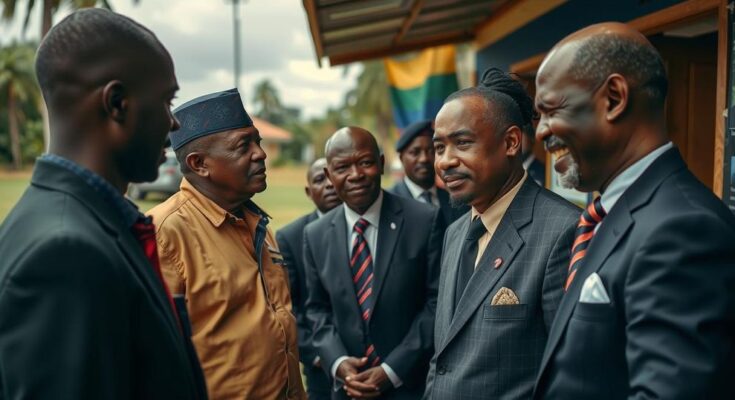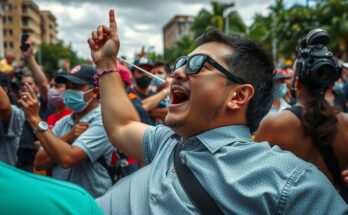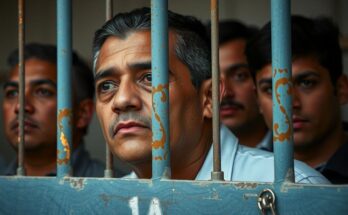Uganda’s opposition leader, Bobi Wine, visited Kizza Besigye in prison post-arrest in Kenya, condemning government actions and urging Kenya to prevent similar incidents. Government spokesperson Chris Baryomunsi confirmed Kenya’s involvement in Besigye’s arrest. The international community has raised concerns over human rights implications after Besigye was charged and remanded to prison, amidst growing scrutiny on Uganda’s political repression.
Uganda’s opposition leader, Robert Kyagulanyi, commonly known as Bobi Wine, visited fellow opposition figure Kizza Besigye in prison and reported that the latter was in “good spirits.” Bobi Wine condemned the Ugandan government’s actions following Besigye’s arrest in Nairobi, urging Kenyan officials to implement necessary measures to prevent similar occurrences in the future. Chris Baryomunsi, spokesperson for the Ugandan government, confirmed that Besigye’s arrest was conducted with the knowledge of Kenyan authorities, despite initial denials from Kenya regarding their involvement.
The controversy stems from Besigye’s abduction in Nairobi and subsequent arraignment in Kampala on various charges including weapons possession and soliciting support from foreign entities to undermine Uganda’s security. Besigye refuted these allegations, asserting his status as a civilian which should exclude him from military court proceedings. Consequently, he was remanded to Luzira prison pending further judicial process.
Baryomunsi defended the arrest of Besigye, emphasizing the legal frameworks that permit cross-border arrests based on extradition agreements. This incident has drawn international attention, with the United Nations expressing deep concern over the implications for human rights and political repression. Kenya’s foreign ministry expressed regret over the incident, announcing an investigation into the events surrounding Besigye’s arrest. Amidst escalating tensions, Uganda’s increasing crackdown on political dissent is becoming evident, particularly following the deportation of several opposition members from Kenya in recent months, further aggravating the fragile political climate in the region.
The political climate in Uganda has seen significant unrest, particularly with the activities of opposition figures such as Kizza Besigye, who has been a long-standing critic of President Yoweri Museveni. Besigye’s recent abduction in Kenya and subsequent trial in Uganda highlight concerns regarding human rights and political repression within the region. Moreover, cooperation between Kenya and Uganda regarding security and intelligence has come under scrutiny, raising questions about sovereignty and the treatment of political dissidents and the implications for bilateral relations. International organizations, including Amnesty International, have voiced their concerns over incidents of alleged transnational repression facilitated by state authorities in both Uganda and Kenya. This situation underscores the challenges faced by political activists in East Africa, where repression appears to be increasing despite commitments to uphold democratic principles and human rights.
The recent developments surrounding Kizza Besigye’s arrest reflect underlying tensions between opposition forces and the Ugandan government, emphasizing a troubling trend of transnational repression. Bobi Wine’s visit and condemnation of governmental actions underscore the urgency for international scrutiny regarding human rights violations in Uganda. Moreover, the cooperation between Uganda and Kenya in matters of security governance raises critical questions about political freedom and the treatment of dissent across borders. The global community’s reaction to these events could influence future engagements between these nations and the advocacy for democratic freedoms. Overall, the current situation illustrates the precarious state of political dissent in East Africa, highlighting the need for vigilance and advocacy for human rights and democratic governance in the region.
Original Source: newscentral.africa




